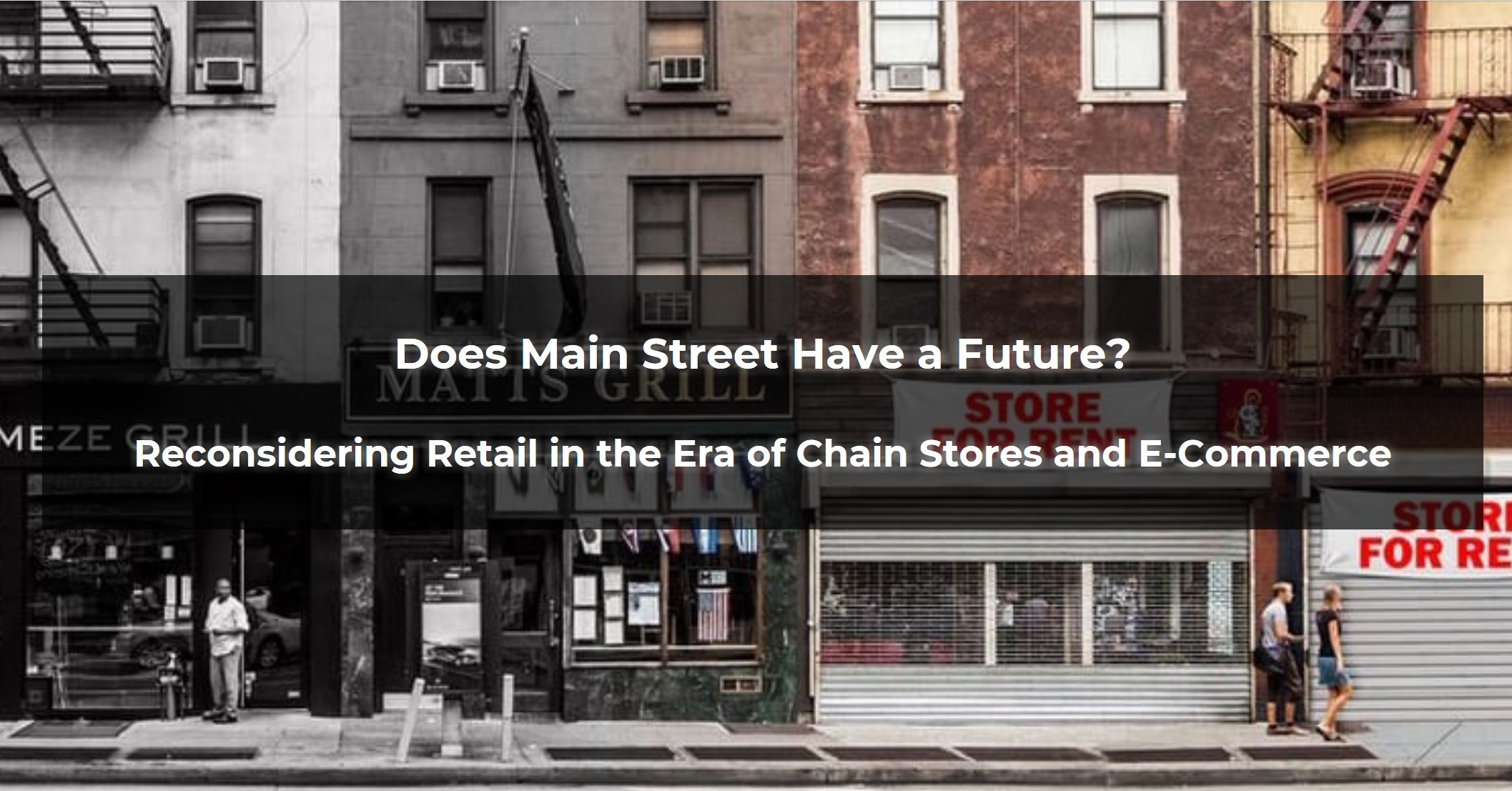Does Main Street Have a Future? - Reconsidering Retail in the Era of Chain Stores and E-Commerce
To discuss the present status and explore the future viability of neighborhood-base retail in the era of chain stores and e‐commerce, the Centre for the Future of Places organized a one-day symposium in Chicago together with the Mansueto Institute for Urban Innovation and the Center for Spatial Data Science at The University Of Chicago.

All presentations are available to watch on our YouTube channel, recorded by the Centre for the Future of Places media team.
Conference summary:
Neighborhood‐based retail used to play an active role in the life of urban neighborhoods. In many cities, a variety of factors, including most recently online shopping, have contributed to the long decline of small, independent retail establishments, rendering, according to some critics, Jane Jacobs’ vision of activated street life via small business ownership a nostalgic illusion. Scholars, however, have long recognized that neighborhood‐based services are essential for neighborhood stability. Neighborhoods that have been able to provide local services and facilities –small groceries and other outlets serving daily life needs –have been shown to be more stable, often with a higher sense of community and an ability to promote social networks of interdependence.
The conference brought together researchers to evaluate the current status and viability of existing retail that is small, independent, and neighborhood‐based. What is the current status and future prospects of what has been known as “main street.” Is neighborhoodbased retail still viable?

